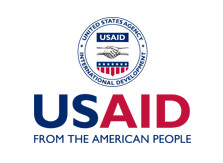Polio
Strengthening Polio
Immunization Activities
Despite several rounds of nationwide immunizations, Nigeria remains a center of transmission of the Wild Polio Virus. According to the World Health Organization, nearly 800 cases of Wild Polio were diagnosed in Nigeria in 2004.
COMPASS is working to eradicate this debilitating disease by deploying strategic technical assistance to the polio eradication campaign through its collaboration with the Nigerian National Polio Eradication Initiative. COMPASS strengthens polio immunization activities by mobilizing communities, improving vaccination coverage and management, and overseeing the monitoring and evaluation of all immunization efforts. COMPASS’ polio eradication work takes place in the Federal Capital Territory and ten other states: Bauchi, Jigawa, Kaduna, Kano, Katsina, Kebbi, Lagos, Nasarawa, Sokoto and Zamfara.
COMPASS’ polio interventions address the following components:
- Micro-planning and operational preparedness: Improving planning and implementation of supplementary polio immunization activities and participating in advocacy meetings at the federal, state, and local levels to ensure resource allocation.
- Supervision and monitoring systems: Assisting with selecting vaccination teams and supervisors; supervising trainings according to national guidelines; identifying and planning for high-risk areas; developing community maps and providing critical supplies and transportation.
- Community and social mobilization: Reviewing and analyzing data from each immunization round and applying results to subsequent activities; exploring with communities and providers ways to recognize and build upon achievements; and identifying emerging priorities and focusing resources where they are most needed.
- Training: Advising on planning and implementation of training programs for supervisors, vaccinators and recorders; sharing best practices; and training trainers and field staff how to influence content and quality of training.
- Information collection and use: Using data to identify unvaccinated children; sharing information to identify aspects of unsuccessful campaigns and make improvements; and supporting the acute flaccid paralysis surveillance system
- Rehabilitation of polio victims: Assisting adult polio victims with developing appropriate skills and knowledge for self-sufficiency and independence.
Expected Results
Through these interventions COMPASS expects to achieve the following Polio eradication objectives and outcomes:
- Increased levels of polio immunization at state and local levels;
- Improved logistics related to oral polio vaccine immunization activities;
- Improved monitoring and evaluation of polio immunization efforts at the national, state and ward levels;
- Increased skills and self-reliance among the adult polio-disabled; and
- Strengthened communication and community mobilization.
|
